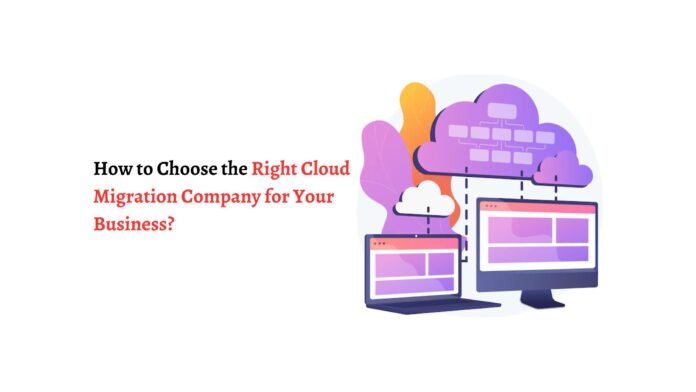For modern-age businesses to continue running smoothly, cloud technology has become an integral part of leveraging untapped opportunities and many benefits. Be it forward-looking startups or well-established enterprises, as organizations are moving toward more digitalized businesses rigorously, partnering with a cloud migration company that offers custom solutions can help you achieve long-term success.
This is because transitioning to the cloud requires a data-driven cloud migration strategy and seamless migration process, as your business’s success or failure depends on it. One misconfiguration can make or break the entire project, leading the entire migration process and strategy to vain.
Therefore, it is essential to focus on the right cloud migration service provider for your business.
Key Factors to Consider While Selecting the Right Cloud Provider for Migration Services
1. Understanding Business Requirements
While this may seem obvious, having clear requirements and minimum expectations beforehand ensures that you evaluate each provider against a consistent set of criteria rather than comparing providers against each other. This approach helps you efficiently narrow down your options from a long list to a shortlist.
When migrating applications and workloads to the cloud, the specific environments and services offered by your chosen cloud provider will influence the configurations required.
2. Certifications & Standards
Providers that comply with recognized standards and quality frameworks demonstrate adherence to industry best practices. While certifications alone may not determine your choice, they are useful for shortlisting potential suppliers. For instance, if security is a priority, consider providers with certifications like ISO 27001 or the Cyber Essentials Scheme.
In addition to standards, look for structured processes, effective data management, good knowledge management, and clear visibility into service status. Also, ensure you understand how the provider plans to maintain and support ongoing compliance with these standards.
3. Technologies & Service Roadmap
Assess whether the provider’s cloud architectures, standards, and services suit your workloads and management preferences. Consider how much re-coding or customization might be required to make your workloads compatible with their platforms.
Ask about the provider’s service development roadmap—how do they plan to innovate and grow over time? Depending on your cloud strategy, evaluate the overall portfolio of services offered by the provider.
4. Data Governance and Security
Assess the cloud provider’s data and system security measures, the maturity of their security operations, and their governance processes. The provider’s security controls should clearly support your own security policies. Ensure user access and activity are auditable, and clarify security roles and responsibilities as defined in contracts or business policies.
If the provider complies with standards like the ISO 27000 series, verify their certifications and ensure they allocate sufficient resources to maintain compliance. Request internal security audit reports, incident reports, and evidence of remedial actions taken for any issues identified.
5. Service Dependencies & Partnerships
Understanding the provider’s relationships with key vendors, their accreditation levels, technical capabilities, and staff certifications is important. Uncover any service dependencies and partnerships involved in delivering the cloud services. Ensure the provider can guarantee the primary SLAs across all service components, including those not directly under their control.
Be cautious of providers with a long chain of subcontractors, especially for mission-critical business processes or data governed by data privacy regulations.
Also read Cloud Migration and App Modernization: Role and Strategies
Conclusion
In your evaluation of a potential cloud migration company, consider both tangible and intangible factors: assess their certifications and standards, and also review customer feedback through case studies and testimonials.
Plan for the long-term to prevent lock-in – avoid proprietary technologies and ensure a clear exit strategy to mitigate future challenges.
Invest time in developing effective SLAs and contractual terms – these are your primary safeguards to ensure the agreed-upon services are delivered.





